Exam 24: Carbon-Carbon Bond-Forming Reactions in Organic Synthesis
Exam 1: Structure and Bonding77 Questions
Exam 2: Acids and Bases59 Questions
Exam 3: Introduction to Organic Molecules and Functional Groups56 Questions
Exam 4: Alkanes64 Questions
Exam 5: Stereochemistry76 Questions
Exam 6: Understanding Organic Reactions53 Questions
Exam 7: Alkyl Halides and Nucleophilic Substitution73 Questions
Exam 8: Alkyl Halides and Elimination Reactions52 Questions
Exam 9: Alcohols,ethers,and Related Compounds60 Questions
Exam 10: Alkenes and Addition Reactions54 Questions
Exam 11: Alkynes and Synthesis51 Questions
Exam 12: Oxidation and Reduction51 Questions
Exam 13: Radical Reactions51 Questions
Exam 14: Conjugation, resonance, and Dienes53 Questions
Exam 15: Benzene and Aromatic Compounds47 Questions
Exam 16: Reactions of Aromatic Compounds60 Questions
Exam 17: Introduction to Carbonyl Chemistry; Organometallic Reagents; Oxidation and Reduction59 Questions
Exam 18: Aldehydes and Ketones - Nucleophilic Addition52 Questions
Exam 19: Carboxylic Acids and the Acidity of the O-H Bond53 Questions
Exam 20: Carboxylic Acids and Their Derivatives - Nucleophilic Acyl Substitution50 Questions
Exam 21: Substitution Reactions of Carbonyl Compounds at the a Carbon47 Questions
Exam 22: Carbonyl Condensation Reactions51 Questions
Exam 23: Amines65 Questions
Exam 24: Carbon-Carbon Bond-Forming Reactions in Organic Synthesis47 Questions
Exam 25: Pericyclic Reactions62 Questions
Exam 26: Carbohydrates50 Questions
Exam 27: Amino Acids and Proteins46 Questions
Exam 28: Synthetic Polymers45 Questions
Exam 29: Lipids45 Questions
Exam 30: Molecular Ion Peaks and Fragmentation Patterns19 Questions
Exam 31: Analyzing Molecular Motion and Infrared Spectroscopy37 Questions
Exam 32: Organic Spectroscopy Concepts51 Questions
Select questions type
Choose the statement below that is not true about the Suzuki reaction.
Free
(Multiple Choice)
4.9/5  (35)
(35)
Correct Answer:
C
Identify the major organic product of the following reaction. 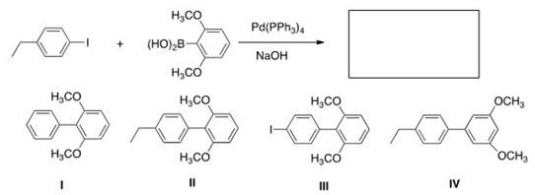
Free
(Multiple Choice)
4.8/5  (44)
(44)
Correct Answer:
B
What is the major organic product of the following reaction? 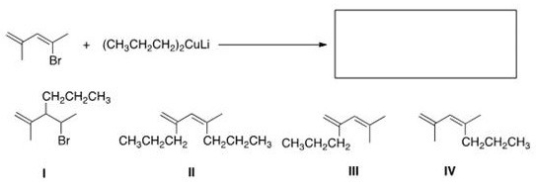
Free
(Multiple Choice)
4.7/5  (37)
(37)
Correct Answer:
D
Identify the major organic product of the following reaction. 
(Multiple Choice)
4.8/5  (36)
(36)
What is the major organic product of the following reaction? 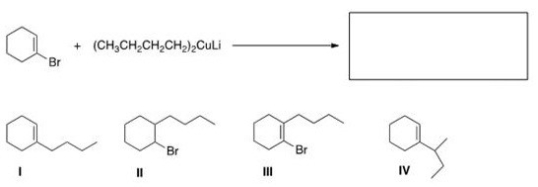
(Multiple Choice)
4.9/5  (34)
(34)
Dichlorocarbene reacts with an alkene to form a cyclopropane derivative.In this reaction the dichlorocarbene acts as a(n)
(Multiple Choice)
4.9/5  (33)
(33)
What is the major organic product of the following reaction? 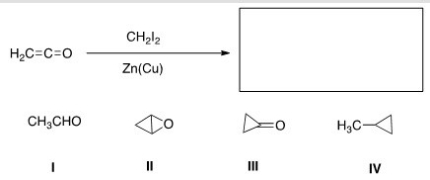
(Multiple Choice)
4.8/5  (35)
(35)
What is the name for the type of intermediate X formed in the reaction sequence below? 
(Multiple Choice)
4.8/5  (39)
(39)
As shown below,when cis-2-butene reacts with dichlorocarbene,only the cis-1,1-dichloro-2,3-dimethylcyclopropane is formed.What can we conclude about the nature of the reaction mechanism? 
(Multiple Choice)
5.0/5  (40)
(40)
Coupling reactions with vinyl halides are stereospecific.Which choice below best describes the expected product when trans-1-bromo-1-hexene reacts with (CH3)2CuLi?
(Multiple Choice)
4.8/5  (31)
(31)
Identify the starting material that would be used to form the following product in a ring-closing metathesis reaction utilizing a Grubbs catalyst? 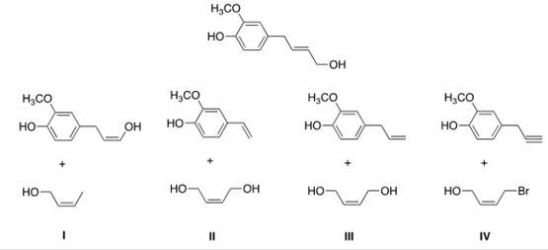
(Multiple Choice)
4.8/5  (38)
(38)
Which of the following is true about the use of the Grubbs catalyst?
(Multiple Choice)
4.9/5  (33)
(33)
Organocuprate reagents (R2CuLi)react with several compounds.Which listed reaction is not correct?
(Multiple Choice)
4.8/5  (34)
(34)
Starting with chloroform,what reactions order and reagents are necessary to produce the following product? 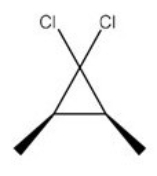
(Multiple Choice)
4.7/5  (39)
(39)
Starting with chloroform,what reactions order and reagents are necessary to produce the following product and its enantiomer? 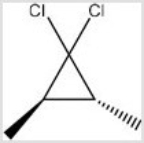
(Multiple Choice)
4.8/5  (46)
(46)
Identify the structure of the major organic product that results from the following reaction. 
(Multiple Choice)
4.7/5  (33)
(33)
Which of the following statements is not true about a carbene?
(Multiple Choice)
4.8/5  (41)
(41)
What reactant would be necessary to produce the product indicated in the following reaction? 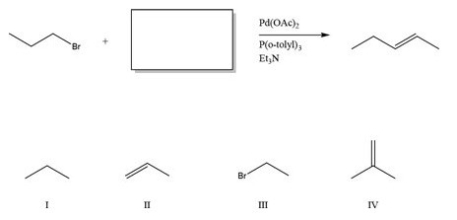
(Multiple Choice)
4.9/5  (40)
(40)
Showing 1 - 20 of 47
Filters
- Essay(0)
- Multiple Choice(0)
- Short Answer(0)
- True False(0)
- Matching(0)